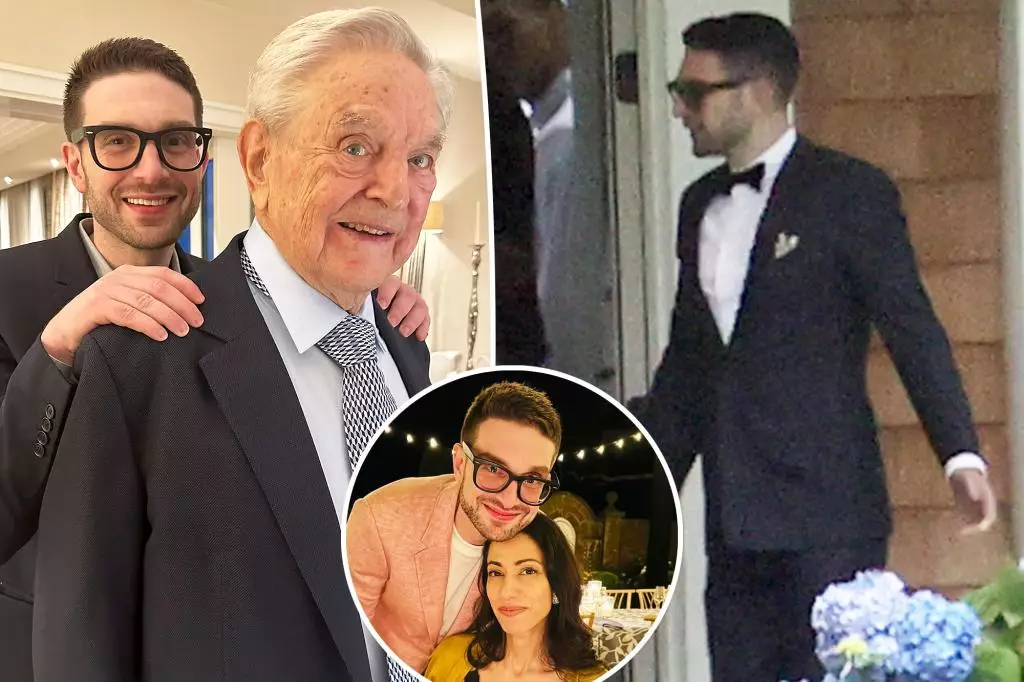In the lavish world of celebrity weddings, few events capture the essence of grandeur like the recent marriage between Alex Soros, son of billionaire philanthropist George Soros, and Huma Abedin, a longtime aide to Hillary Clinton. The wedding, held on a picturesque Saturday, showcased a confluence of political and social elites, leaving many attendees buzzing about the festivities. However, amid the glitz, the conspicuous absence of the elder Soros raised eyebrows. At 94 years old, he chose to skip the ostentatious celebration but made an appearance at a more intimate family service the day before. The choice speaks volumes about the dynamics of family relationships as well as the personal values that underpin such high-profile unions.
Two Ceremonies, One Love
This dual-ceremony approach not only paid homage to the couple’s diverse heritages but also highlighted a growing trend in weddings: inclusivity. The Friday service, which blended elements of both Jewish and Muslim traditions, was officiated by a rabbi and an imam, showcasing mutual respect and love between their respective cultures. This enlightening intersection of faith reflects a broader societal shift toward embracing multiculturalism, particularly in personal commitments. By signing the Nikah and the Ketubah, Soros and Abedin demonstrated a profound respect for each other’s backgrounds—a commendable testament to modern love.
Star Power and Elite Networks
Saturday’s celebration was a veritable “who’s who” of political and cultural titans, featuring prominent figures such as Bill and Hillary Clinton, Kamala Harris, and even Jimmy Fallon. The impressive guest list not only exemplified the reach of the couple’s connections but also illuminated the intertwining of politics and celebrity culture in today’s world. With George Soros being a significant Democratic donor, the political weight behind the nuptials cannot be overlooked. However, it also poses questions about how personal relationships and political affiliations intermingle in elite circles. Are these relationships predicated purely on shared interests, or do they stem from genuine admiration and friendship?
The Unforgettable Food and Festivities
Reportedly, the wedding feast was as extravagant as its guest list, incorporating dishes like agnolotti pasta and American Wagyu steak. Such choices symbolize not just a celebration of love, but also an ostentatious display of wealth that often accompanies elite gatherings. Culinary selections at high-profile weddings function like echoes of social status—each dish serves not only as a meal but as a symbol of affluence and exclusivity. The choice of entertainment, with the iconic Boyz II Men performing, further amplified the event’s grandeur, reminding attendees that even in the world of the ultra-rich, nostalgia and charm can reign supreme.
An Evolution of Relationships
Analyzing the match between Soros and Abedin reveals more than just a rich tapestry of emotional connection; it reflects the evolving expectations of modern relationships. Abedin, now linked to influential figures on both the political and media fronts, appears to symbolize a new archetype of woman: one that marries intellectual gravitas with social clout. Her previous marriage to Anthony Weiner may have come with its challenges, but her choice to forge a partnership with Soros marks a distinct evolution in her narrative. For Soros, his relationship with Abedin signifies more than personal bliss; it positions him further within the corridors of power that influence modern policy and perception in a time when every connection can impact larger societal outcomes.
Glimmers of the Future
In a world increasingly dominated by digital influence and shifting power dynamics, the Soros-Abedin wedding is reminiscent of a chessboard—every marriage, every alliance, and every menu choice crafted meticulously to bolster social standing and influence. As we reflect on this momentous occasion, it serves as a reminder of how intertwined our personal and professional lives have become, especially among the elite. As the couple embarks on their journey together, one can only speculate how their union will further intertwine with the ever-evolving landscape of political and social narratives in the years to come.
In a social climate that thrives on connections, the Soros-Abedin union is emblematic of the new age of matrimonial alliances—where love mingles with legacy, and personal affiliations shape the very fabric of public life.

